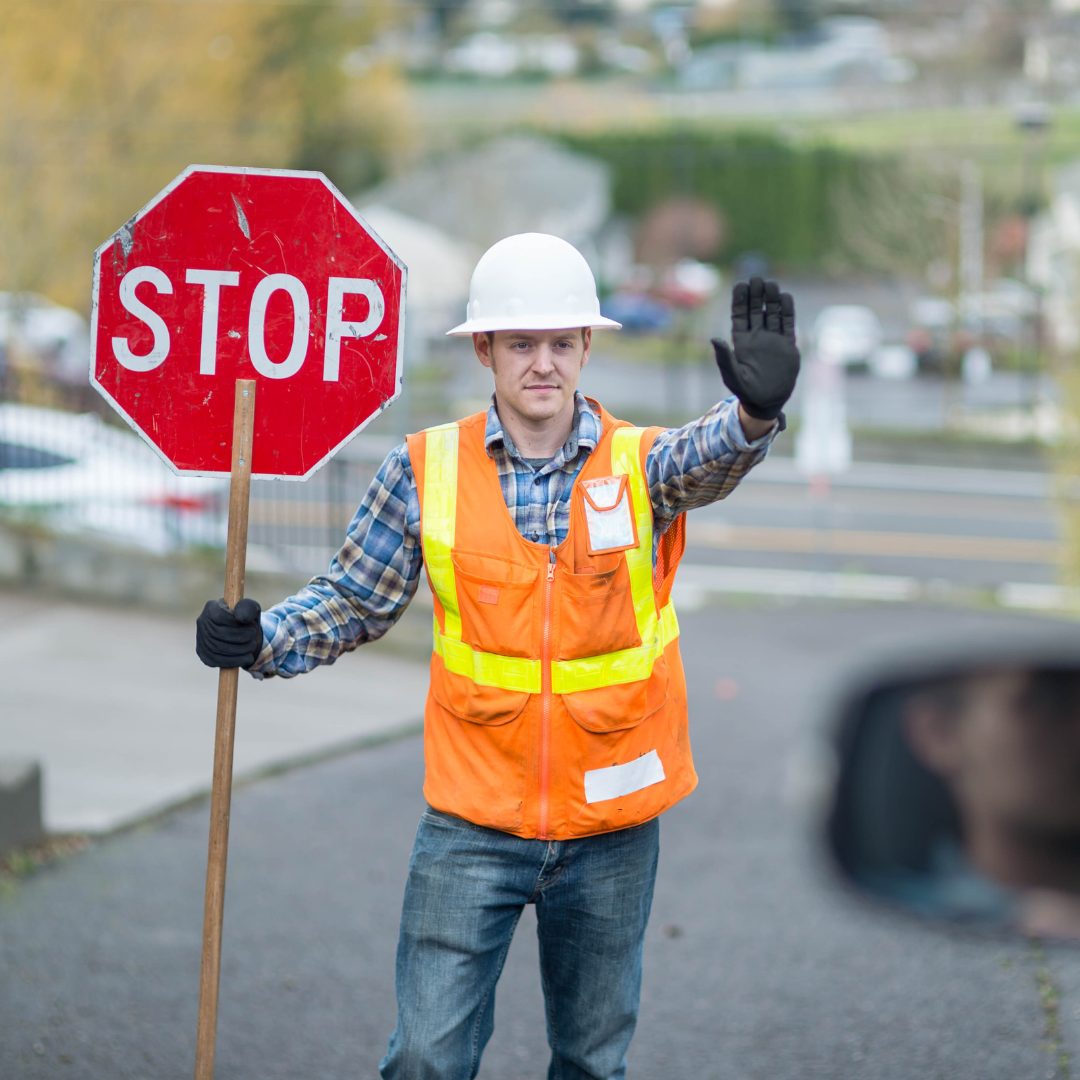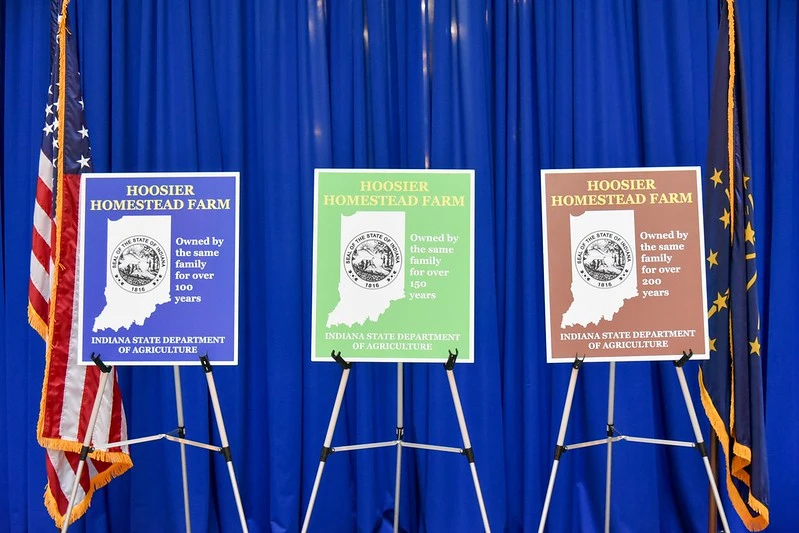What are your state legislators doing on your behalf? The Indiana House Republicans host a podcast each week to answer this question and talk about what’s happening in your state government. The podcast features one-on-one interviews with lawmakers who highlight new laws, events and other issues impacting Hoosiers.
Communities across Indiana can roll forward with road and bridge projects thanks to a recent boost in state funding.
Indiana’s Community Crossings Matching Grant program will provide $207 million to 252 Indiana towns, cities and counties. Funds can be used for road and bridge preservation, road reconstruction, intersection improvements and other items.
To qualify for the competitive grant, smaller municipalities provide a 25 percent match in local funds, while larger communities provide a 50 percent match. State law requires 50 percent of the available matching funds be awarded annually to communities within counties with a population of 50,000 or fewer.
Since 2016, Community Crossings has awarded more than $1.4 billion to improve local roads and bridges.
Visit the Indiana Department of Transportation website to learn more about the Community Crossings Matching Grant Program and view the full list of award recipients. The next call for projects opens July 1.
According to the U.S. Department of Veterans Affairs, Indiana’s veteran suicide rate is higher than the national average. In 2021, nearly 140 Hoosier veterans died by suicide and over 6,000 died nationwide.
This legislative session, we supported a new law to create a Green Alert that will notify the public when a veteran or military service member is reported missing and believed to be at risk of being hurt or hurting themselves. The alert will function similarly to the state’s successful Amber Alert for missing children and Silver Alert for missing seniors.
A Green Alert will be issued by the Indiana State Police for veterans, active service members, Indiana National Guard members and reservists within 48 hours of the individual being reported missing. Like other alerts, the notification will include a description and last-known location of the individual, and if they are considered a risk to themselves or others.
House Enrolled Act 1021 passed unanimously out of the Indiana House of Representatives and Senate, and received support from the Military/Veterans Coalition of Indiana, the American Legion, Disabled American Veterans, Veterans of Foreign Wars and the National Guard Association of Indiana.
Support is available for Hoosier service members and veterans struggling with mental health or experiencing a crisis. For 24/7, confidential crisis support, veterans or their loved ones can dial 988 then press one or send a text to 838255 for the Veterans Crisis Line. Callers do not have to be enrolled in veteran benefits or health care to connect. Hoosiers can also visit veteranscrisisline.net and join a chat with a VA responder.
April is Child Abuse Prevention Month and it’s important we all do more to spread awareness and share information about where Hoosiers can go for help.
According to a report from 2022, the Indiana Department of Child Services investigated 308 child fatalities in which abuse or neglect was a suspected factor, which is up about 13 percent from the previous year.
This session, two new laws aim to help foster care children who are also part of abuse and neglect cases. House Enrolled Act 1369 will give DCS and the court system tools and concise guidelines when working toward reuniting families. When deciding whether to terminate a parent-child relationship, courts will also be able to consider whether a child is a victim of sexual misconduct or living with an adult charged with the death of another child stemming from abuse or neglect.
Children can often wait more than a year in foster care until their case is resolved. If reunification isn’t possible, the child continues to wait as DCS develops a new plan to place them in a permanent home. To help reduce wait times, House Enrolled Act 1310 requires DCS to develop concurrent plans to ensure a child can either be reunited with their family or placed in a permanent home as quickly as possible.
As we recognize Child Abuse Prevention Month, let’s come together to raise awareness of the many resources and programs dedicated to prevention. Visit in.gov/dcs to learn about the variety of services devoted to healthy families. Visit here to learn more about ways you can get involved to help prevent abuse and neglect.
Organizations like Prevent Child Abuse Indiana offer educational resources and prevention trainings for parents and individuals who want to learn more about spotting and reporting signs of child abuse.
By law, anyone who suspects abuse or neglect must report it. This can be done anonymously by calling the Indiana Child Abuse and Neglect Hotline at 1-800-800-5556. Trained professionals are ready at all times to take calls and serve Hoosiers.
Recently, 60 Hoosier farm families were recognized with Hoosier Homestead Awards at the Statehouse in Indianapolis for being in operation for 100 years or more.
The Hoosier Homestead Awards, created in 1976, are given biannually to spotlight farms that have been owned and maintained by the same family for 100, 150 and 200 years with centennial, sesquicentennial and bicentennial distinctions.
Over the past 48 years, more than 6,000 Indiana farms have received this honorary award. Nominated farms must have more than 20 acres or produce more than $1,000 of agricultural products each year to qualify for the award.
Every year, an award ceremony is held in the spring and summer to honor these longstanding homesteaders’ contribution to the community. Indiana is an agricultural powerhouse, and this industry will continue to play a large role in our state and local economies, contributing approximately $35 billion each year.
Congratulations to Indiana’s hardworking farm families on their years of dedication. To learn more about the Hoosier Homestead Award Program and to see a complete list of award winners, click here.
Indiana relies on many of its public servants to keep the state moving forward. Whether its teachers helping the next generation of Hoosiers learn or our law enforcement keeping communities safe, state employees play a vital role.
We know that many of our retired public employees are experiencing higher costs of living, making it harder to make ends meet and pay for utilities, groceries and other necessities.
To help these retirees, we led efforts and passed a new law that will provide them with a one-time, post-retirement payment or 13th check. Eligible retirees include teachers, state excise police, gaming agents, gaming control officers, conservation officers and state police officers who retire before July 1, 2025. This one-time payment, taken from existing, dedicated funds in the states two-year budget, will average about $360 per recipient. Through the new law, nearly 100,000 retired public employees will receive a 13th check to help with the rising costs of living.
Any public employees who retire on or after July 1, 2025 will receive a 1% cost-of-living adjustment.
To learn more about House Enrolled Act 1004 and other laws signed by the governor, visit in.gov/gov/newsroom/2024-bill-watch.
During the 2024 legislative session we supported legislation to help Hoosier students, including boosting work-based learning opportunities.
One new law builds off work last year to create Career Scholarship Accounts, which can be used by sophomores, juniors and seniors to enroll in earn-and-learn opportunities, as well as to pay for items like transportation and uniforms. House Enrolled Act 1001 extends the application window for students to apply for these scholarships and expands use of the funds to include driver’s training classes.
The application window for the CSA program is currently closed but will reopen later in 2024. To learn more about the program, visit in.gov/tos/csa.
The new law also expands eligibility for Education Scholarship Accounts, which helps students with disabilities access educational environment that best meets their learning needs. Funding can be used for approved educational programs, therapies, services, tuition and fees, and other education-related expenses. Under HEA 1001, ESAs could be used by the siblings of students who have disabilities, even if those siblings do not have a disability.
Applications for Indiana’s ESA program are now open through Sept. 1. To learn more, visit in.gov/tos/inesas.
According to a 2023 study from the National Cancer Institute, mammograms miss about 20% of breast cancers present during a screening. This is an increased risk for the nearly 50% of women ages 40 to 74 with dense breast tissue. Denser tissue can make it difficult to identify and diagnose breast cancer.
Now, Indiana will join 38 other states with a new law ensuring dense breast tissue patients will be informed of their increased risk of breast cancer during a mammogram examination. This law will also specify that coverage of breast cancer rehabilitative services and reconstructive surgery include chest wall reconstruction and aesthetic flat closure.
Gov. Eric Holcomb recently signed this legislation into law and our goal is to increasing awareness of the cancer risks associated with dense breast tissue. The law will take effect July 1, 2024.
To learn more about House Enrolled Act 1058 and other legislation considered for new laws by the governor, visit in.gov/gov/newsroom/2024-bill-watch.
Legislation on its way to the governor’s desk would crack down on a robocall scam where homeowners receive a small cash offer in exchange for signing a decades-long contract that could cost them thousands.
According to the Indiana Office of the Attorney General’s Consumer Protection Division, more than 300 Hoosiers entered into these contracts known as Homeowner Benefit Agreements. Robocallers generally offer to give homeowners between $500-$700 in exchange for signing a long-term contract, which gives the company exclusive rights to sell the home, if and when the homeowner decides to, or provide maintenance. A homeowner could only break the contract if they pay a termination fee, which could be 3% of their home’s value as estimated by the company.
Homeowner Benefit Agreements can be binding for up to 40 years, even if the property changes ownership, and the company can place a lien on the property’s title, which complicates a homeowner’s ability to refinance, access home equity and transfer ownership. The contract is often binding to the property, so it remains in place even after the owner’s death.
To help crack down on these unfair practices, this legislation would make real estate service agreements unenforceable if it’s a contract for maintenance, purchase or sale of the property that is not expected to be completed within a year or is binding on future owners and creates liens on the property. This bill would also allow individuals adversely affected by these agreements to seek damages against the service provider. Exceptions would be made for home warranties covering systems such as plumbing, heating and cooling, and electrical wiring.
At least 16 other states enacted similar laws restricting HBAs and the Federal Communications Commission took action last year against these types of robocalls.
Visit iga.in.gov to learn more about House Enrolled Act 1222.
According to the U.S. Department of Agriculture, foreign ownership of U.S. land is up 40% since 2016. As of 2022, over 438,000 acres in Indiana were owned by foreign entities.
As these numbers continue growing, concerns about food security and national agricultural security are rising. This session, the Indiana House of Representatives unanimously passed bipartisan legislation to prevent foreign adversaries from leasing or owning Hoosier farmland. That would include mineral, water and riparian rights on Indiana agricultural land. In addition, an affidavit confirming the purchaser is not a foreign adversary or working with a country that is considered a foreign adversary must be provided at the real estate closing of agricultural land. Foreign adversaries would also be prohibited from owning or leasing land within 50 miles of a military installation and 10 miles from any Indiana National Guard armory or maintenance facility.
The U.S. Department of Commerce maintains a list of adversarial countries, which currently includes Russia, China, North Korea, Iran, Cuba and Venezuela.
Tennessee, California and Texas are working on similar legislation to limit and address the growing concern of foreign land ownership across the country. Recently, U.S. Sens. Mike Braun and Todd Young, and congressional members submitted a public letter in full support of this legislation. Learn more about House Bill 1183 and track it through the legislative process at iga.in.gov.








